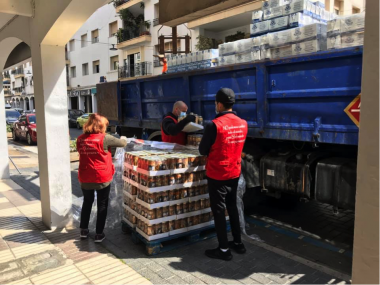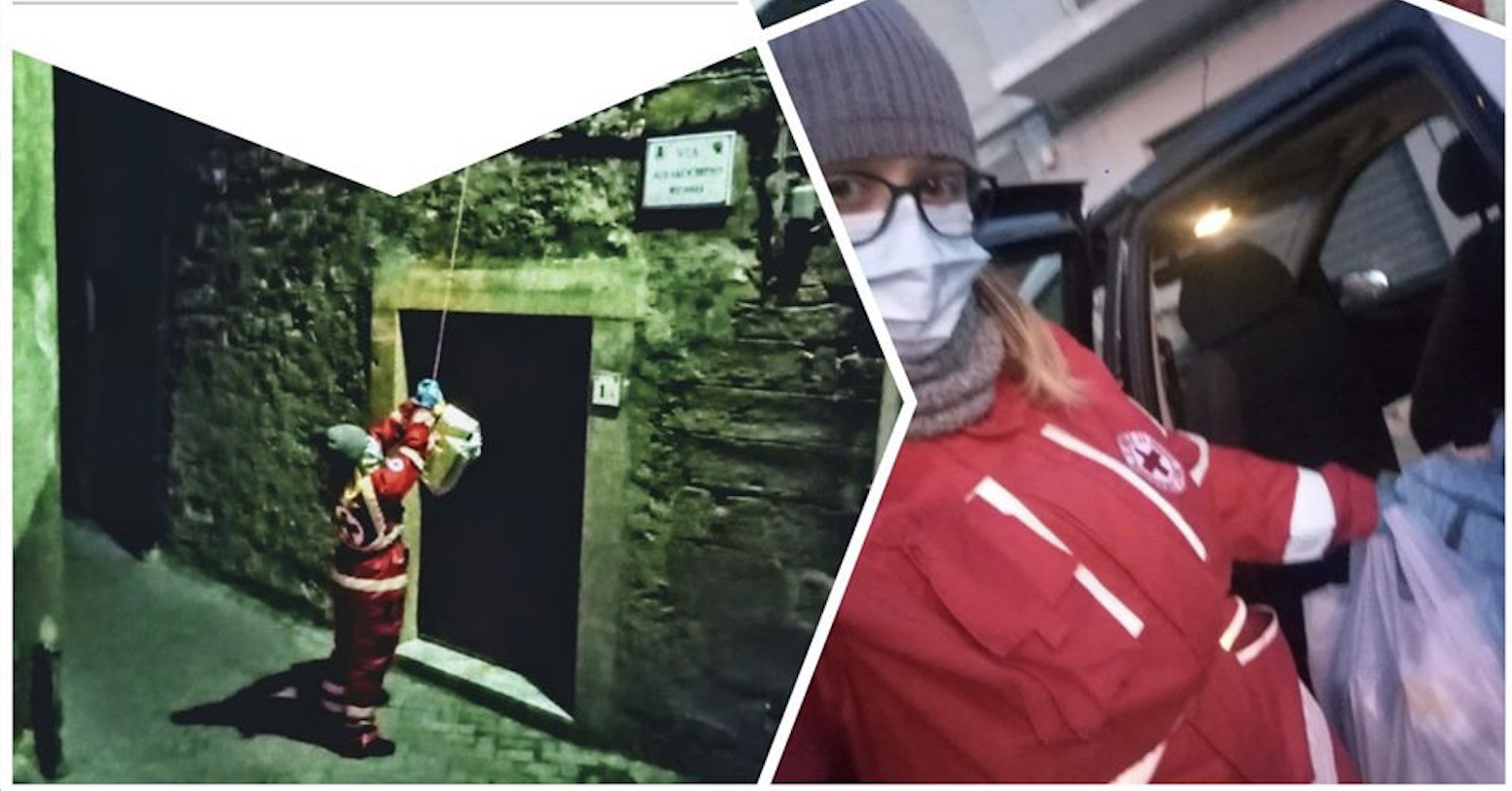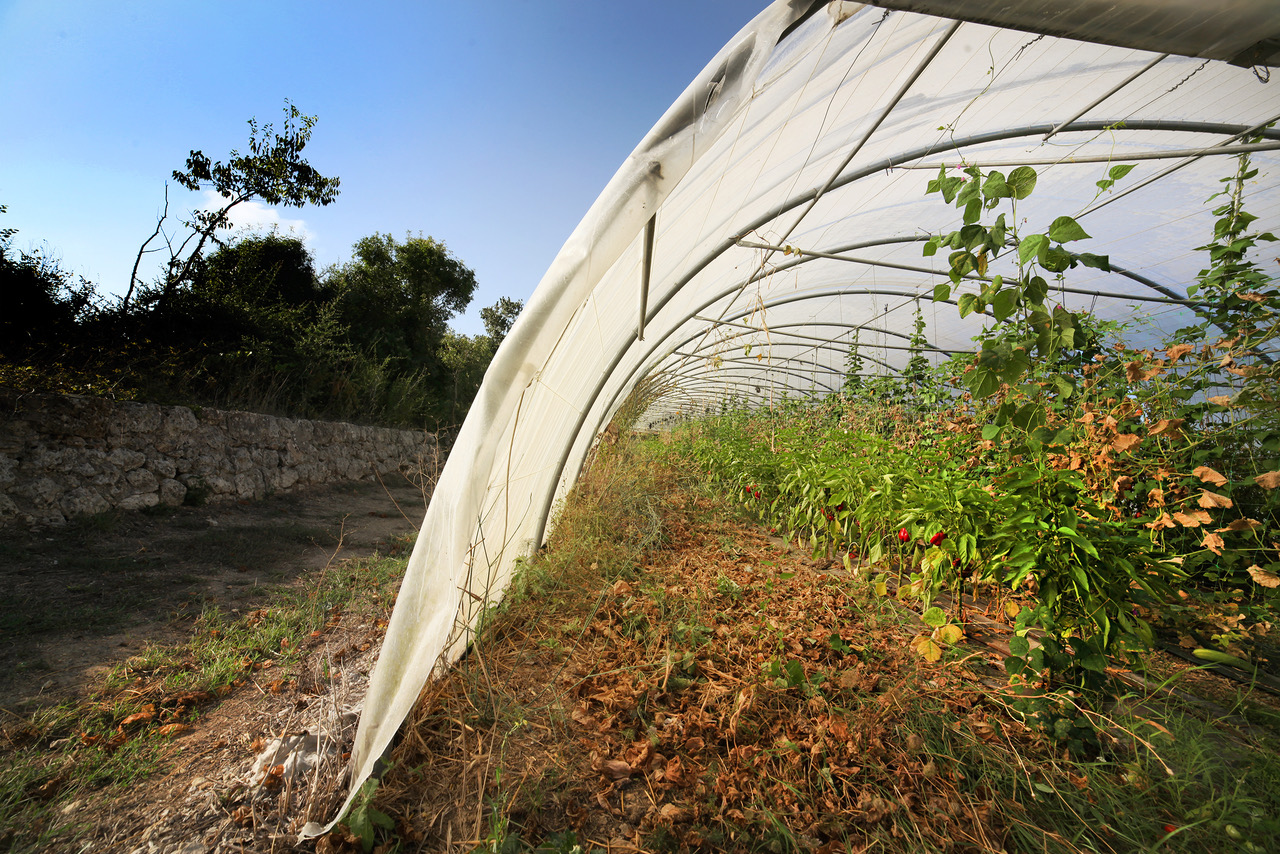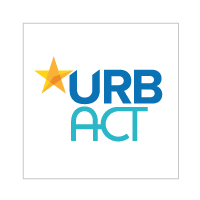How are URBACT cities reacting to Covid-19?
Edited on
06 August 2020At a time when the impact of the pandemic has changed our way of life, cities are showing their resilience.

Cities are intervening in novel ways to support frontline health services, food supplies, the local economy and people’s mental well-being. Several are building directly on capacity built during their experiences in URBACT networks, showing that the programme’s principles of local stakeholder engagement and transnational exchange can support cities to achieve their objectives, even in times of crisis.
Volunteers in action in Altea (ES)
We asked some of our URBACT experts what examples of city responses had caught their attention. Read their thoughts, then check out the interactive map of other great city examples that the URBACT Programme is collecting from across Europe. More in-depth analysis will follow in the next few weeks so stay tuned!
Cities supporting front-line health workers
Cities are finding novel ways to support hospitals and health workers. “Right now, cities are throwing everything at the short-term problem,” stresses Eddy Adams. “That means supporting the medics, like in Pireaus (EL), whose Blue Lab has repurposed 3D printers to make protective faceshields for health staff.” This initiative builds on the experience of the city in supporting local innovation through the ‘BlueGrowth’ competition, recognised by URBACT as a good practice in 2017 and currently the focus of the URBACT Transfer Network BluAct.
Meanwhile, in Hungary, Ivan Tosics highlights that “despite the increasing centralisation of government in recent years and severely restricted local budgets, the city of Budapest (HU) has reacted by ordering medical instruments from abroad and is distributing these to health institutions, homeless shelters and elderly homes. The city also signed agreements with private health institutions to test employees in key professions for the functioning of the capital.”
 Citizen-led solutions have also been an important aspect of the human response to the crisis affecting health services and city authorities can still learn more about how to support and encourage such initiatives. Laura Colini has been impressed that the URBACT Transfer Network Volunteering Cities - based on the experience of the Athienou (CY) Municipal Council of Volunteering (MCV) – “is now sharing how volunteers are engaged in different cities to provide first necessity products, producing masks or any other needed materials.”
Citizen-led solutions have also been an important aspect of the human response to the crisis affecting health services and city authorities can still learn more about how to support and encourage such initiatives. Laura Colini has been impressed that the URBACT Transfer Network Volunteering Cities - based on the experience of the Athienou (CY) Municipal Council of Volunteering (MCV) – “is now sharing how volunteers are engaged in different cities to provide first necessity products, producing masks or any other needed materials.”
Also from the Volunteering Cities network, a volunteer in Capizzi (IT)
Cities supporting the local economy
Given the impact of lockdown policies on people’s economic activities, many urban authorities have swiftly introduced measures to freeze rents and business taxes, and are helping local companies to access support. Ivan Tosics flags that Budapest has “increased the wages of employees of municipality-owned enterprises and introduced a moratorium on rent payments for small and micro enterprises which rent space from the municipality. The local authority has also offered free signs to shops in the city to call attention to the right distance to maintain between customers.”
Many cities are looking at opportunities to extend their digital service provision, including to local companies who cannot access traditional support in the current circumstances. Long before the Covid-19 pandemic, the URBACT network TechTown was stressing the importance of the digital economy and its Lead Partner Barnsley’s (UK) Digital Media Centre was identified as an URBACT Good Practice - going on to form the basis of the current URBACT Transfer Network TechRevolution.
Sally Kneeshaw has seen how the city has built on these experiences to step up its response to the current crisis: “Barnsley’s Digital Media Centre last week pivoted to virtual delivery to support businesses with chat and call centres, and made a commitment to bankroll the Government's grant scheme for those in the most impacted sectors of retail, leisure and hospitality.” The platform is also providing tips and guidance for more secure remote working.
Supporting the local economy also means supporting families most affected by job losses and loss of income. Whilst many national unemployment schemes are being adapted in response to the specific current challenges, Laura Colini highlights that exchanges within URBACT’s Volunteering Cities network have also included “brewing ideas and exchanging practices on the involvement of local companies or individuals in offering products or financial aid to families in need”.
Cities ensuring local food supplies
Many European citizens are concerned about ongoing supplies of food as production and distribution systems come under strain from threats to workers’ health and restrictions on movement. The URBACT network AGRI-URBAN was addressing ways of improving local food supply in urban areas back in 2016. The AGRI-URBAN partner city, Mouans-Sartoux (FR) saw its collective school catering recognised as an URBACT good practice in 2017 and became the Lead Partner of the Transfer Network BioCanteens in 2018.
Marcelline Bonneau has kept in touch with their response to the current crisis: “The municipal farm - initially producing organic fruit and vegetables for three school canteens providing a thousand lunches per day - has diversified its distribution channels to meet broader needs and protect jobs. A part still goes to the canteens providing food for the few dozen children of health workers and municipal agents who can still access school, a part is processed and frozen, and another part goes to the social grocery of the city.”
The municipal authorities are already thinking about how to respond to the ongoing food supply challenges. “Soon-to-come lettuces, which cannot be frozen, will probably be given to the neighbouring hospital in Grasse,” continues Ms Bonneau. Meanwhile; the city is exploring ways “to increase production in the next plantation schemes in order to anticipate potential issues in conventional food supply chains” in the near future.
Eddy Adams observes that ‘cities are throwing everything at their short-term problems’. In Vic (ES), this “means supporting communities.Lead Partner of the new URBACT network Healthy Cities is mobilising closed food-market vendors to feed isolated vulnerable individuals”. Such targeted approaches can be crucial for bridging the gap between supply and demand in the context of a lockdown.

Mouans-Sartoux’s municipal farm (FR)
Cities supporting education and mental well-being
National education systems are struggling to rapidly adapt to the situation of students' confinement. Mirella Sanabria, Lead Expert the URBACT Transfer Network On Board tells us: “This is keeping some of our partners - in particular in big cities - busy and stressed. On the positive side, however, some local initiatives are putting into practice innovation related to the use of digital tools in education projects, which is a central aspect of the Educational Innovation Network that On Board is working to transfer.”
For example, the On Board Lead Partner Viladecans (ES) has developed a dedicated School at Home! webpage which provides new creative and educational activities for children and families every day. Meanwhile, in the partner city of Halmstad (SE), a vocational school is now teaching cooking classes online. The municipality delivers grocery baskets to the students who prepare the meals, which are then supplied to people in particular need.
Beyond education, Sally Kneeshaw is keen to highlight that “We are all learning, if we didn’t already know, how much we need culture to sustain us. I love that the librarians of the Tallinn Central Library are reading books on request via Skype or phone for children at home. Meanwhile, Zaragoza (ES) has launched a photography competition #DesdeMiVentana (From my window) open to people aged between 12 and 30, targeting young people who find it the hardest to stay indoors.”
Marcelline Bonneau flags a different example from the city of Mollet del Vallès (ES) which “has created a Leisure at home programme proposing leisure activities to its citizens who are totally prevented from leaving their home without good reason. Launched on Friday 27 March, anyone interested can enjoy a selection of proposed activities alone or in the family. These range from physical classes to memory exercises and from cooking to robotics. The platform is updated and expanded regularly.”
Laura Colini also highlights the work that the URBACT Transfer Network ON STAGE - working on introducing new curricula in schools based on music and arts - is doing in “keeping people together through music. They recently shared a video performance of young students from the school #ZsOsmec from the partner city of Brno (CZ)”. Such initiatives are a reminder of the importance of keeping our spirits high in these challenging times.
Don’t forget to check out the interactive map of other great city examples that the URBACT Programme is collecting from across Europe.
Have you seen another city response that has inspired you? Help us to share it by tagging @URBACT in a tweet or sending it directly to communication@urbact.eu
 Submitted by URBACT on
Submitted by URBACT on




